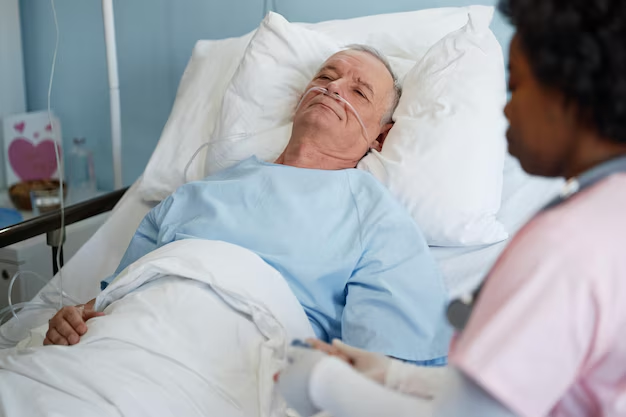Understanding Pneumonia Contagion: When Are You No Longer at Risk of Spreading It?
Pneumonia is a serious lung infection that affects millions worldwide, causing significant health burdens and raising critical questions about contagion. One of the most pressing concerns is when pneumonia is no longer contagious. Knowing the timeline and factors that affect contagion can help manage health risks and protect those around you. Let's dive deeper into the details.
What Makes Pneumonia Contagious?
Pneumonia can be caused by various pathogens, including bacteria, viruses, and fungi. The contagious nature of pneumonia largely depends on the underlying cause. Here's a quick overview:
- Bacterial Pneumonia: Typically, streptococcus pneumoniae is a common bacterium responsible for pneumonia. This form can be contagious through respiratory droplets when an infected person coughs or sneezes.
- Viral Pneumonia: Caused by viruses such as the influenza virus or respiratory syncytial virus (RSV). It spreads easily through contact and airborne droplets.
- Fungal Pneumonia: While less common, this type generally isn't contagious and occurs mostly in individuals with weakened immune systems.
Understanding the causative agent is crucial in determining the contagious period.
How Long is Pneumonia Contagious?
The period during which pneumonia is contagious can vary based on its type:
- Bacterial Pneumonia: With treatment, a person may be less contagious within 24 to 48 hours after starting antibiotics. Without treatment, they can remain contagious for longer.
- Viral Pneumonia: Contagion typically lasts as long as symptoms persist. Viral infections can keep you contagious for up to 10 days.
- Fungal Pneumonia: As it's not typically contagious, the focus is more on treatment and symptom relief than contagion.
Factors Influencing Contagion and Recovery
Several factors influence how long pneumonia remains contagious and how quickly a person recovers:
1. Timely and Appropriate Treatment
Prompt initiation of treatment can shorten the contagious period. Antibiotics for bacterial pneumonia are effective in reducing contagion within a couple of days. Antiviral drugs for viral pneumonia may also help speed up recovery and reduce spread.
2. Immune System Health
A strong immune system can fight off infections faster, reducing the contagious period. Engaging in good health practices such as proper nutrition, regular exercise, and adequate sleep can boost immunity.
3. Hygiene Practices
Good hygiene practices are crucial in limiting the spread of pneumonia. These include regular hand washing, covering the mouth while coughing or sneezing, and using tissues or masks if necessary.
4. Overall Health and Existing Conditions
People with underlying health conditions or weakened immune systems may experience longer recovery and contagious periods. Chronic illnesses, like diabetes or heart disease, can reduce the body's ability to ward off infections.
Symptoms Indicating Contagiousness
Recognizing the symptoms of pneumonia can help assess the risk of contagion. Key symptoms include:
- Persistent cough (which can spread pathogens)
- Fever or chills
- Shortness of breath
- Chest pain during coughing or breathing
Monitoring these symptoms and seeking medical advice when necessary is essential for managing pneumonia.
Preventive Measures to Protect Yourself and Others
While pneumonia can be highly contagious, certain measures can mitigate the risk of spreading it:
1. Vaccination
Vaccines, such as the pneumococcal vaccine and flu shot, can prevent specific types of pneumonia. Staying updated with vaccinations is one of the most effective ways to protect yourself.
2. Practicing Good Hygiene
- Always cover your mouth and nose with a tissue or elbow when coughing or sneezing.
- Dispose of used tissues properly and wash your hands immediately.
- Use alcohol-based hand sanitizers when soap and water aren't available.
3. Maintaining Healthy Lifestyle Choices
- Eat a balanced diet that supports immune function.
- Exercise regularly to keep the body strong and healthy.
- Avoid smoking and excessive alcohol consumption, which can weaken respiratory health.
4. Monitoring Symptoms and Seeking Medical Advice
Early diagnosis and management of pneumonia are crucial. Keep track of symptoms and seek medical evaluation if pneumonia is suspected for timely treatment.
Differentiating Pneumonia from Other Respiratory Illnesses
Not all coughs and fevers are signs of pneumonia. Distinguishing pneumonia from other respiratory illnesses is important for appropriate treatment and understanding contagion. Common conditions like the common cold, flu, or bronchitis may have overlapping symptoms but are distinct illnesses with different treatment protocols.
Pneumonia often has more severe symptoms, such as significant chest pain, high fever, and difficulty breathing. A medical provider can accurately diagnose pneumonia using tools such as chest X-rays and blood tests.
Practical Steps After Recovering from Pneumonia
Once the contagious stage has passed, it's vital to focus on recovery and preventing future infections. Here are steps to consider:
- Complete the full course of prescribed medications even if symptoms have improved.
- Follow-up appointments with a healthcare provider to ensure complete recovery.
- Implement long-term lifestyle changes to support respiratory health and prevent recurrence.
Closing Insights
Understanding when pneumonia is no longer contagious allows for informed decisions regarding personal health and the safety of others. By recognizing symptoms, following treatment plans, and practicing good hygiene, you can effectively manage pneumonia, reduce its spread, and promote recovery.
Pneumonia Recovery & Contagion Summary
🚫 Contagion Duration:
- Bacterial pneumonia: 24-48 hours post-antibiotic.
- Viral pneumonia: Until symptoms subside.
✨ Enhance Recovery:
- Start treatment promptly.
- Boost immune health through diet & exercise.
- Maintain good hygiene.
🔎 Recognize Symptoms:
- Persistent cough, fever, shortness of breath.
🛡️ Prevention Tips:
- Get vaccinated.
- Practice good hygiene.
- Adopt healthy lifestyle habits.
Empower yourself with knowledge and proactive measures to safeguard your health and that of others from pneumonia.

Related Articles
- a Typical Pneumonia
- Can a Cold Turn Into Pneumonia
- Can a Sinus Infection Turn Into Pneumonia
- Can Amoxicillin Cure Pneumonia
- Can Amoxicillin Treat Pneumonia
- Can Baby Oil Cause Pneumonia
- Can Bronchitis Turn Into Pneumonia
- Can Covid Turn Into Pneumonia
- Can Doxycycline Treat Pneumonia
- Can Flu Turn Into Pneumonia
